REPUBLIC OF KOREA
Every door opens more
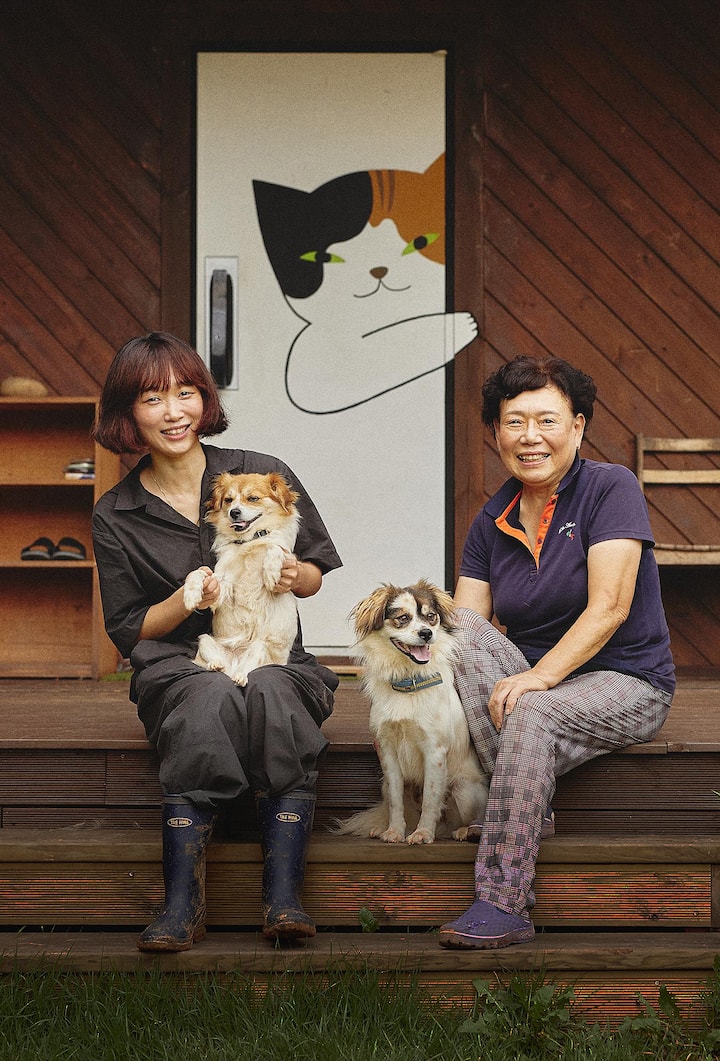
Airbnb’s contribution to Republic of Korea’s people, places and prosperity.
Airbnb’s contribution to Republic of Korea's people, places and prosperity.
Every Airbnb door opens more. A place to stay becomes a place to spend. A host becomes an economic participant and a guest becomes a contributor. While these may be small, distributed decisions, taken together they shape a tourism economy that is both dynamic and decentralised.
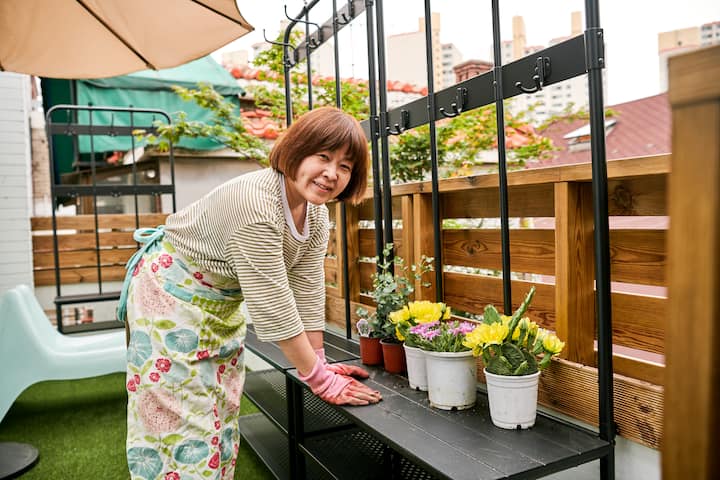
In hillside hanoks in Seoul and Jeju-do’s citrus farms, Airbnb stays support not just movement, but momentum, for the families, vendors and workers who make Airbnb’s contribution to Republic of Korea’s tourism local and lasting.
Short stays: big impact
In 2024, the economic activity generated by Airbnb supported a ₩5.9 trillion contribution to Republic of Korea’s GDP. This included ₩2.7 trillion from direct impact, ₩1.9 trillion from indirect supply chain effects, and ₩1.3 trillion from additional spending generated by wage and income impacts.These flows supported 84,500 jobs across sectors and locations, reinforcing tourism’s role in daily consumption. From traditional tea houses in Gyeongju to cleaners in neighbourhoods across Incheon, these stays are embedded in the rhythms of the everyday economy.
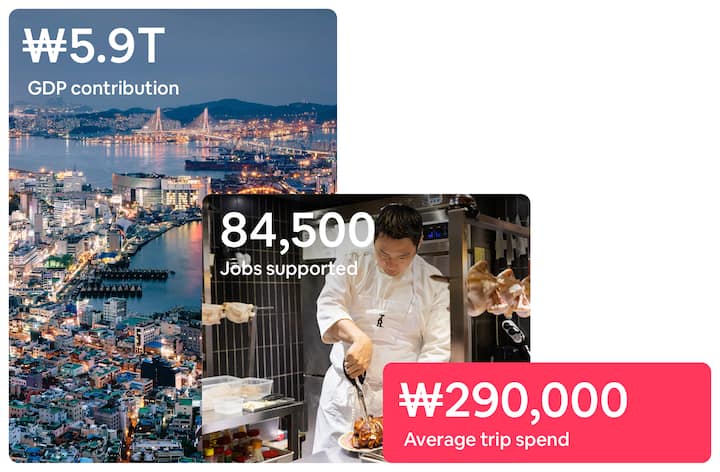
Supporting local communities beyond hosts
Supporting local communities beyond hosts
The value generated by Airbnb extends beyond the stay and reaches industries across the economy.
Top sectors by jobs supported
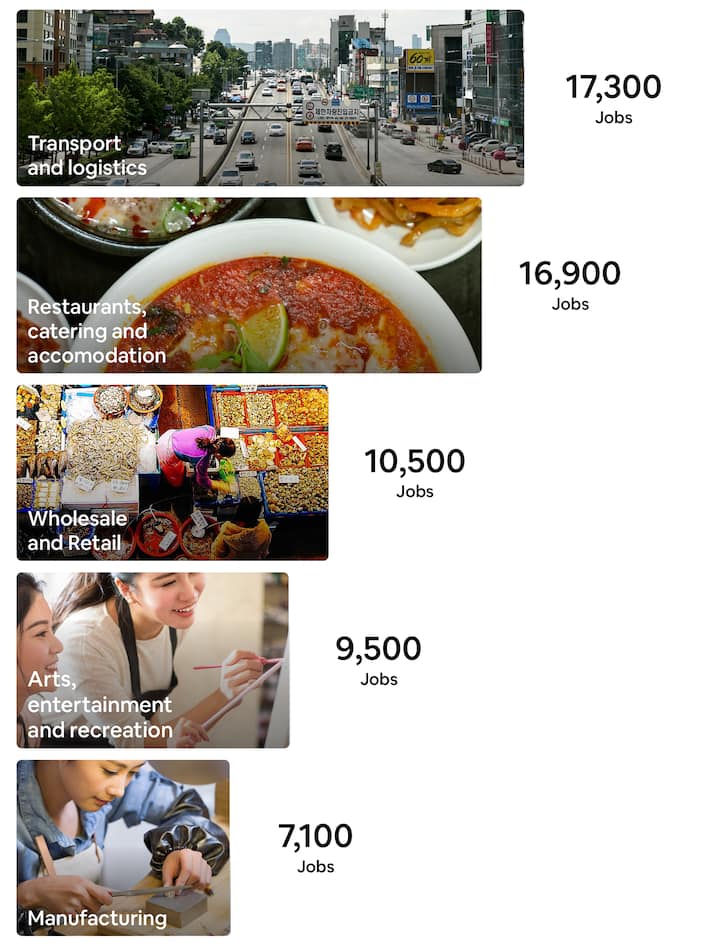
Spending by guests typically includes transport, dining, entertainment and local services. Hosts rely on tradespeople, cleaners, suppliers and other service providers. These downstream effects help embed tourism value within communities and create flexible job opportunities close to where people live.
The guests behind the spend
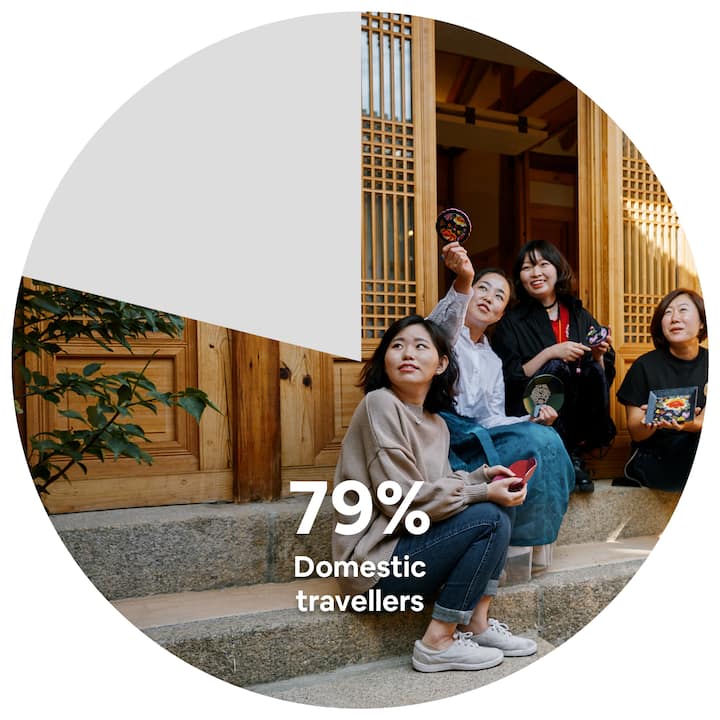
In 2024, 79 percent of Airbnb guests in Republic of Korea were domestic travellers, reflecting a strong internal tourism economy. Guests spent an average of ₩290,000 per trip in non-accommodation spending, contributing ₩6.3 trillion in total guest spending. Whether exploring local cuisine, using public transport or shopping in regional centres, guests are helping sustain local services through their everyday choices.
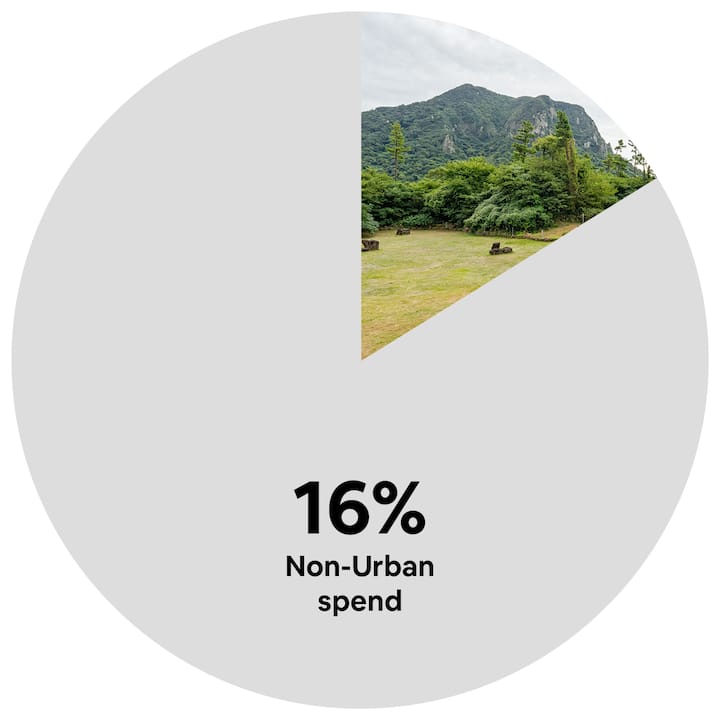
Where they go
In 2024, 16 percent of Airbnb accommodation spending occurred outside Republic of Korea’s major urban centres. This reflects a gradual but ongoing shift in travel patterns, supported by greater platform accessibility and the growing appeal of regional destinations. Since 2019, the share of non-urban Airbnb bookings has risen. From Hanok villages in Jeolla to fishing towns on the East Sea, more guests are choosing places where traditional hotel infrastructure is limited but local experience is rich.
Major destinations
While Airbnb’s economic contribution is felt across Republic of Korea, three destinations highlight the platform’s role in supporting key tourism geographies.
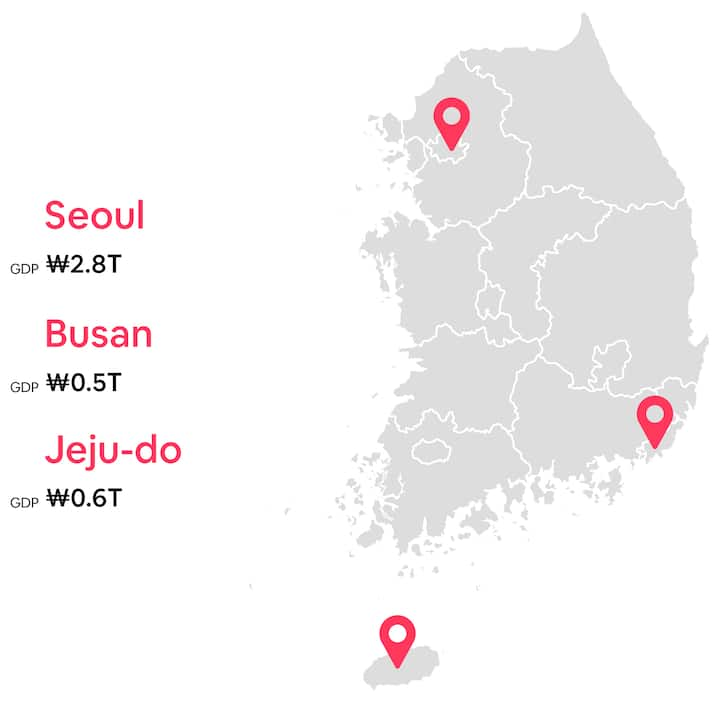
Host spotlight
Behind each listing is a person who made a choice to participate in the visitor economy. Their earnings help meet costs, support households and increase flexibility.
Soyeon
Seoul, Republic of Korea
"Those who stayed at our place and liked the local products often asked me about them and visited nearby stores to buy them as souvenirs to take home. Through experiences like this, it seems that not only the accommodation options, but also the overall appreciation of this area is increasing. By utilising local businesses around the listing, we are not only stimulating the local economy but also maximising the authentic local experience for our guests who visit."
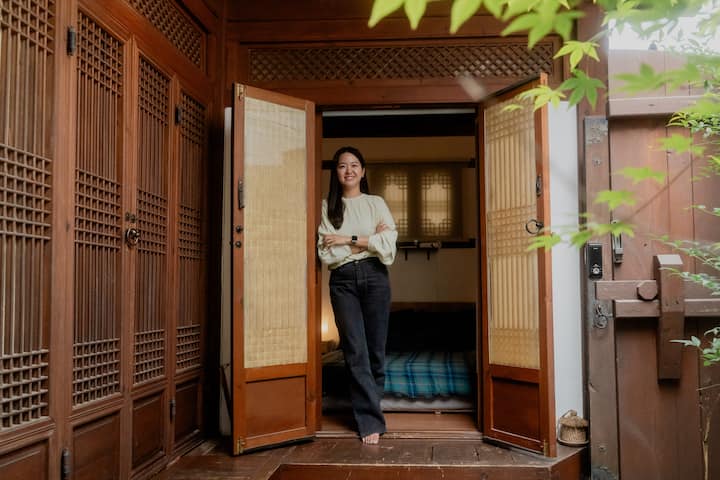

About the report
Airbnb commissioned Oxford Economics, a world-leading economic analysis and forecasting firm, to assess the impact of Airbnb’s ecosystem on communities throughout Asia Pacific.
Data source: Airbnb, Oxford Economics. Data based on 12 months from 1 January to 31 December 2024.